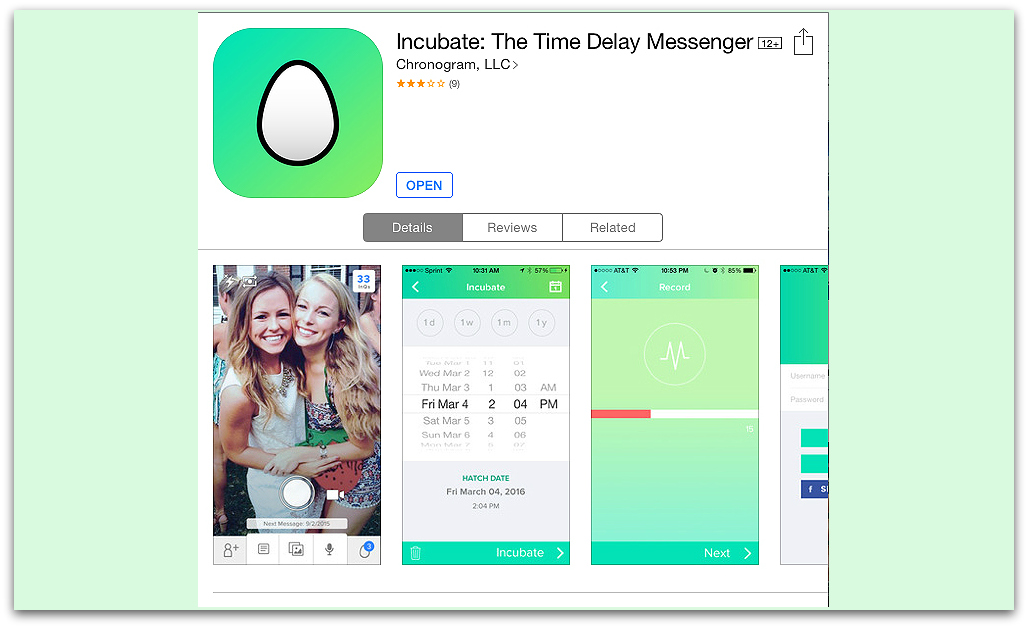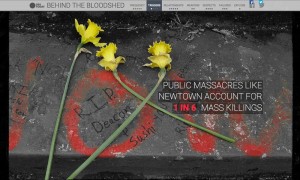
Entrepreneur Michael McCluney’s futuristic idea, sparked by a sleep-deprived buddy who’s the father of triplets, just might be an app that helps journalists write better stories next week or even decades from now.
McCluney’s brainchild, Incubate Messenger, allows users to send text, photo, video or audio messages up to 25 years into the future.
The Incubate app, launched in March, has many uses for people beyond journalists. Imagine if an ailing grandmother could somehow send her grandson a message on his high school graduation day. Or how a soldier won’t miss his wife’s birthday when he’s on patrol in Afghanistan because he scheduled a digital surprise.
“People don’t think about it until you put the functionality in their hands, but everybody can pretty quickly think of reasons that they need to strategically time message, so we just put that in the palm of everyone’s hand,” CEO Michael McCluney said.
McCluney, a 31-year-old serial entrepreneur based in Atlanta, said he hasn’t really considered if or how journalists could use the application. But since it’s billed as the “time-delayed messenger,” reporters could send a text into the future, reminding them of a story follow-up, an anniversary angle or sharing a piece of the present, with the future.
“I think right now that the app is optimized for peer-to-peer communication,” he said. But he added that Incubate hopes to expand this communication and explore the possibility of adding “more social-type things to it.” As a result, perhaps reporters and editors haven’t fully begun to explore how they can use the app to advance their stories.
The app is similar to Boomerang for Gmail, which allows people to control when they send and receive messages. But Incubate caters more to mobile-focused millennials. College students have already started to send funny messages to friends on a night out, coining the term “drinkubate.” Alternately, “incubombing” is when people mass-message a friend on a certain day.
McCluney said he thought of the idea for Incubate when his former college roommate discussed the struggles of caring for his 3-month-old triplets in the middle of the night. He suggested that his friend make recordings to capture the craziness of his triplets’ 3:21 a.m. outbursts, from his four-letter words of frustration to the terrible moment when one screaming child would start a trio of terror. If his friend could send these messages to his children in the future, they could all laugh and appreciate those hectic moments they shared together.
McCluney’s friend not only inspired the basis for the application itself, but also one of Incubate’s unique features called Nursery. Nursery allows parents to start sending time-delayed messages to their children from the time they are born. Parents can create an account their child can access once they get their first mobile device.
Users can send a message to anyone with an account, and they also can view how many messages await them, even years in advance. However, they cannot access certain information ahead of time, including learning the identity of the sender.
“That’s the emotional hook. So that anticipation there has really resonated well…” McCluney said.
Incubate also started an “incubate our wedding campaign,” where the company chose a couple to test the app for their wedding. The betrothed asked their guests to send well wishes for the morning of the big day and to capture parts of the wedding to send for the future. Guests sent the bride and groom hundreds of messages, some queued up for their 10th anniversary, McCluney said.
While Incubate shares certain similarities with social media platforms, such as Vine and SnapChat, McCluney said he believes his app fits a unique niche by allowing users to send messages with a certain type of gravity.
“I just think that we really tap into messages with meaning. And that’s not to say that those other platforms don’t. I just think the unique functionality we bring to the table…allows for a different user experience,” he said.
The company is planning to make Incubate available on smart watches, depending on the app’s success, McCluney told Adweek.
One person commented on Adweek’s story about the simplicity and strength of the idea. “I can instantly think of dozens of ways to use this. Sending blasts from the past into the future is a pretty powerful idea,” he wrote in the comments section.
McCluney declined to reveal the number of downloads, and he said the money-making aspect is coming along.
“We will not do a pay per message, nor change more for a message type,” he explained. “We have several monetization plans but they are not yet public knowledge. We will be launching the first one within a month – an add-on service that helps coordinate the incubating of weddings.”
Currently, the app is available only for Apple devices.







